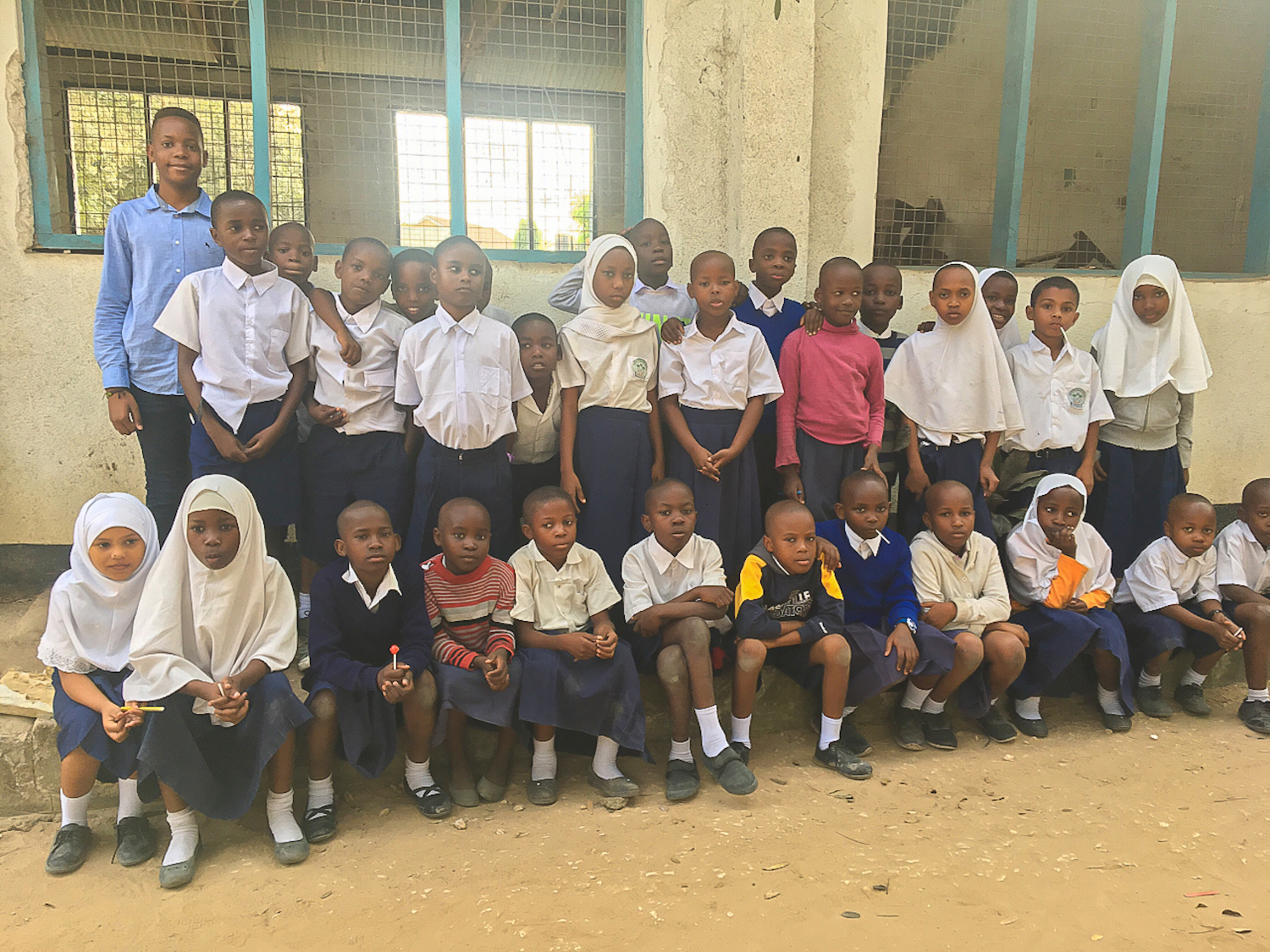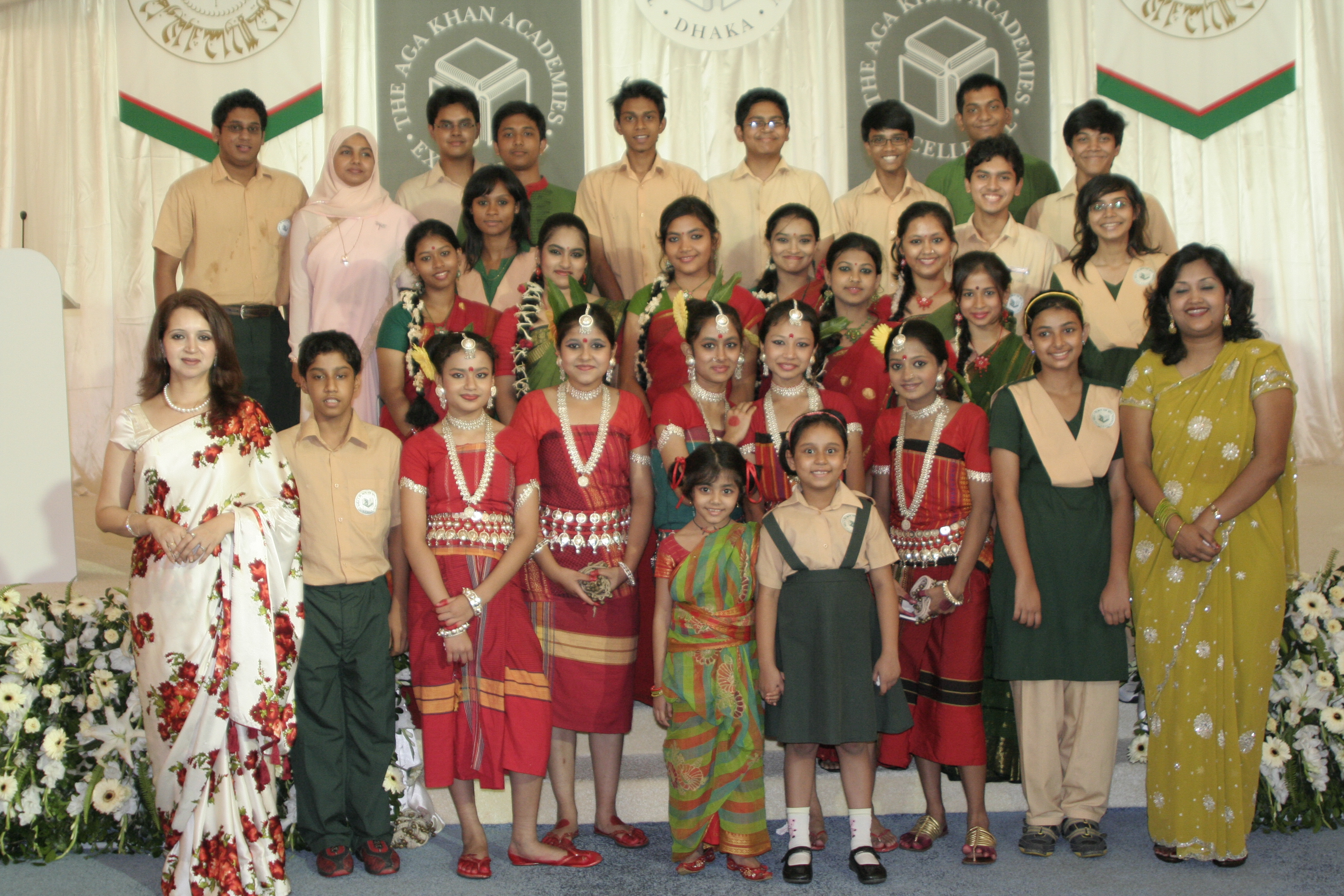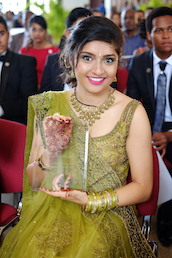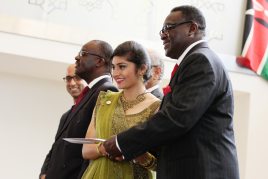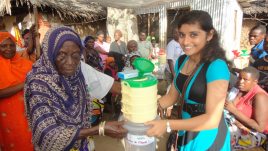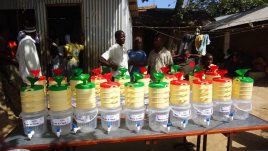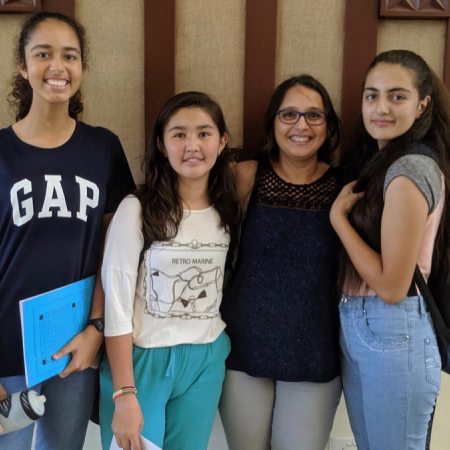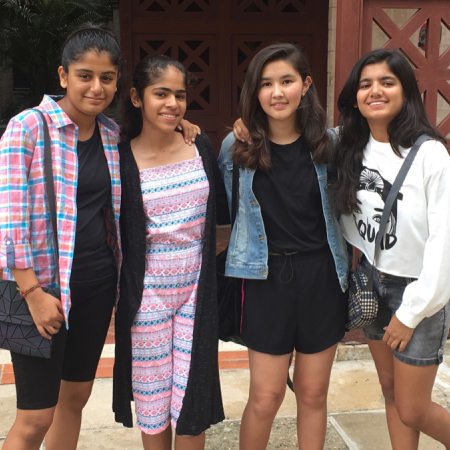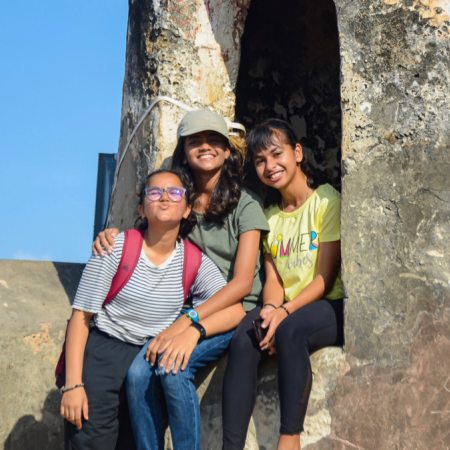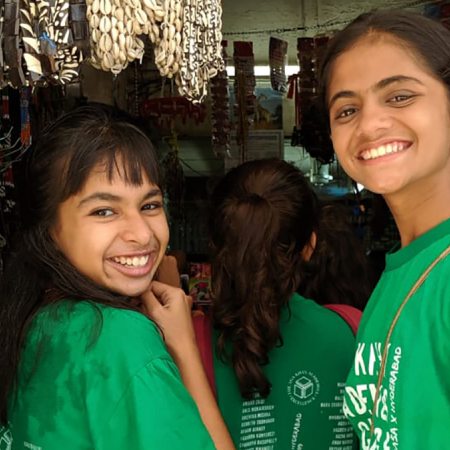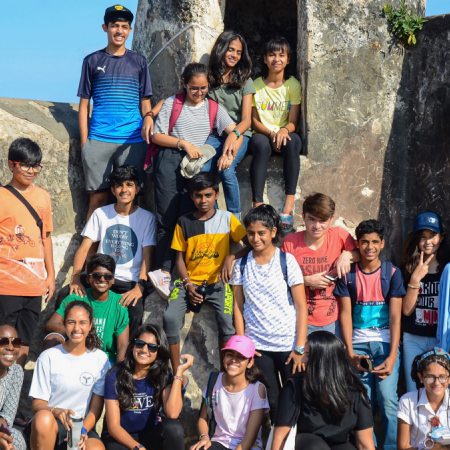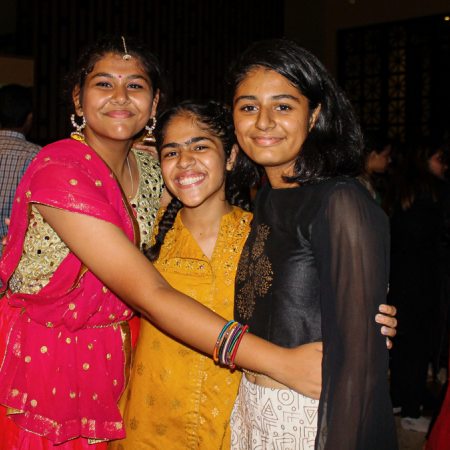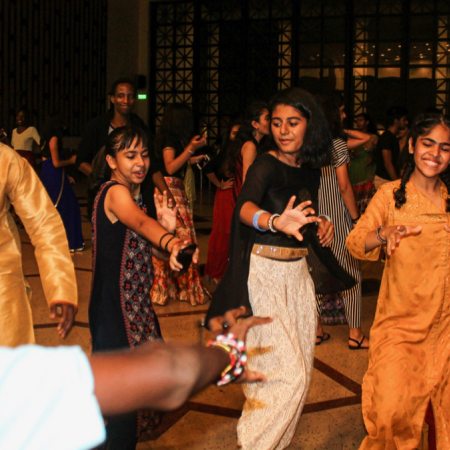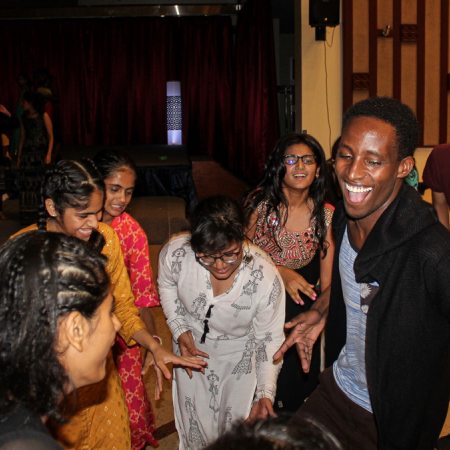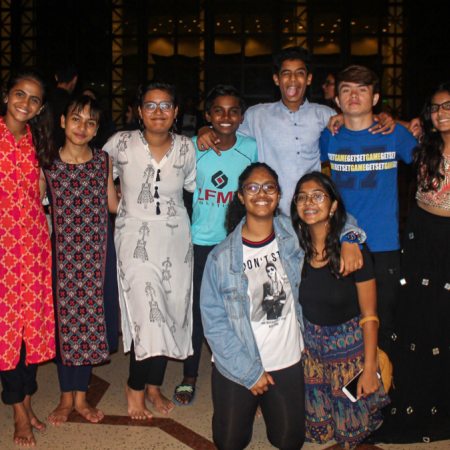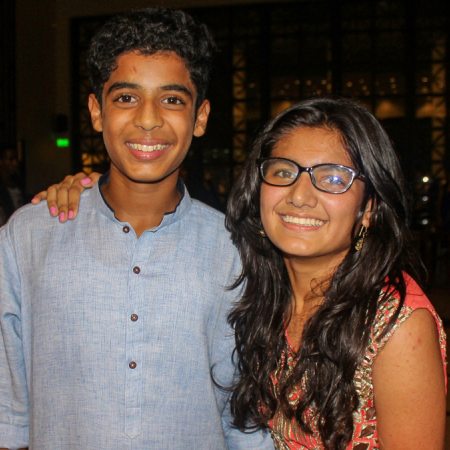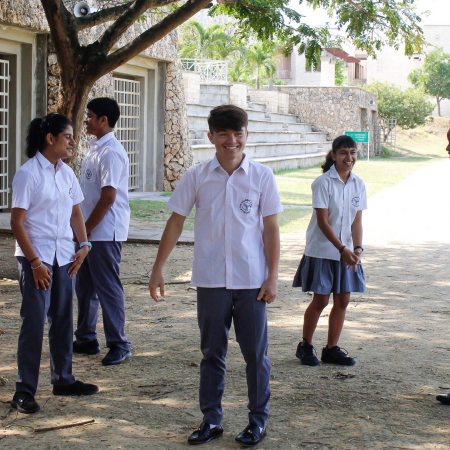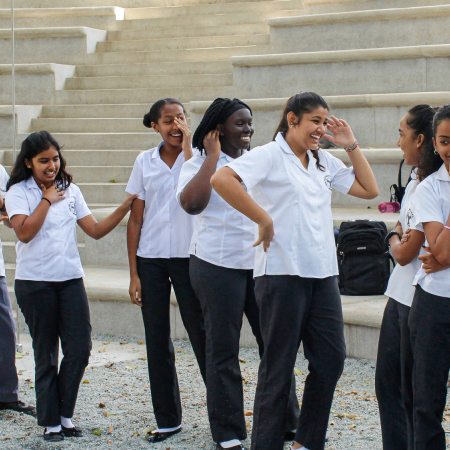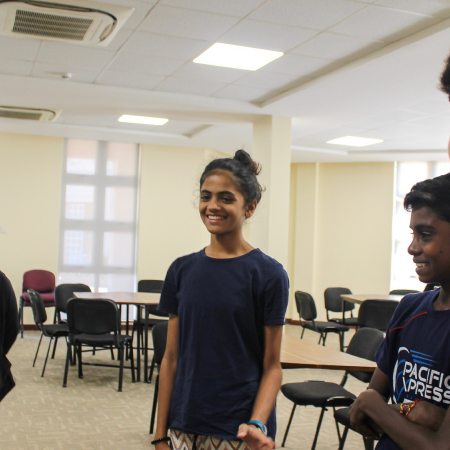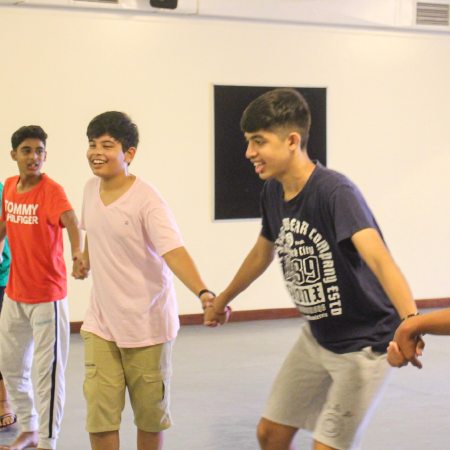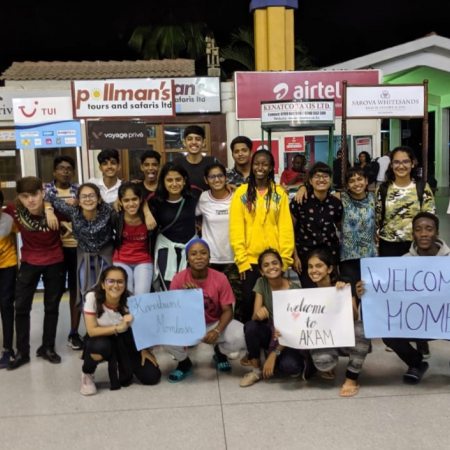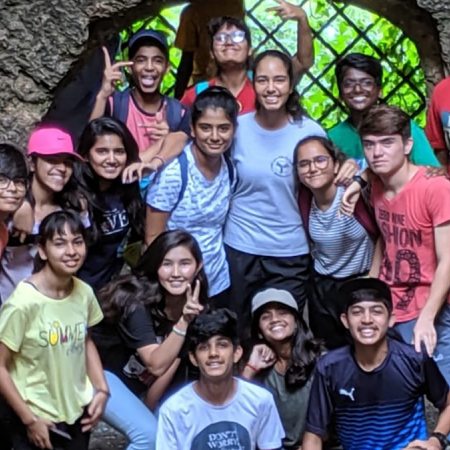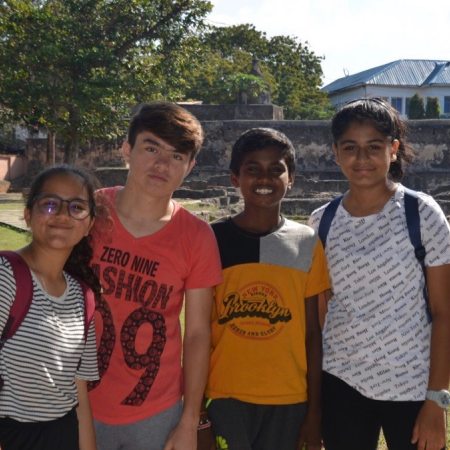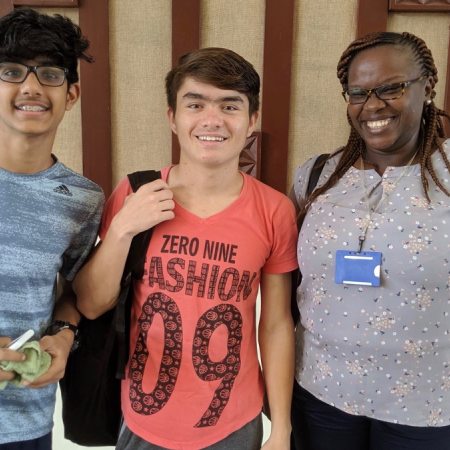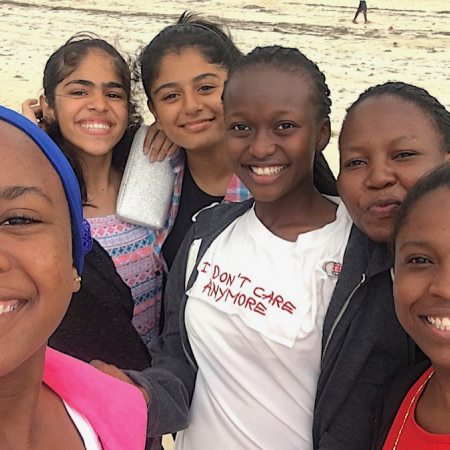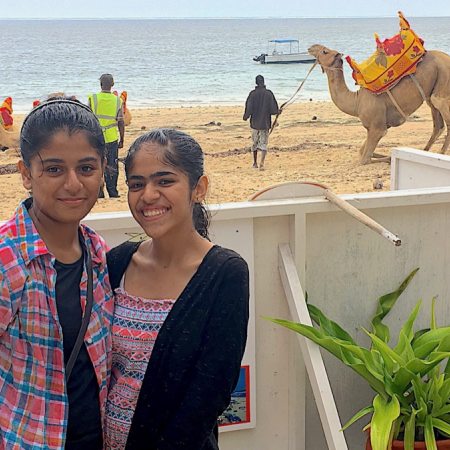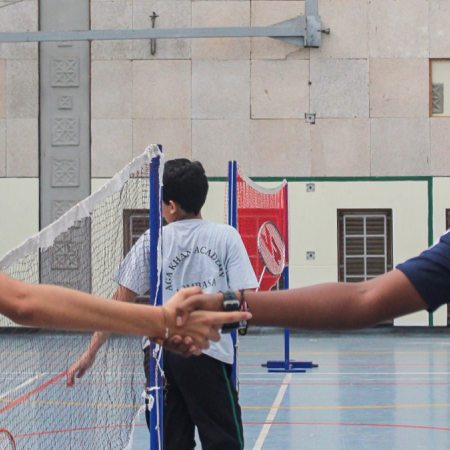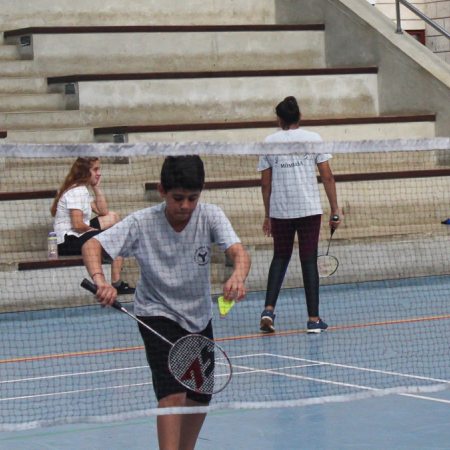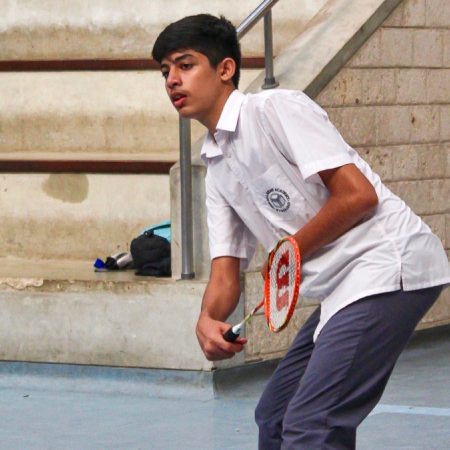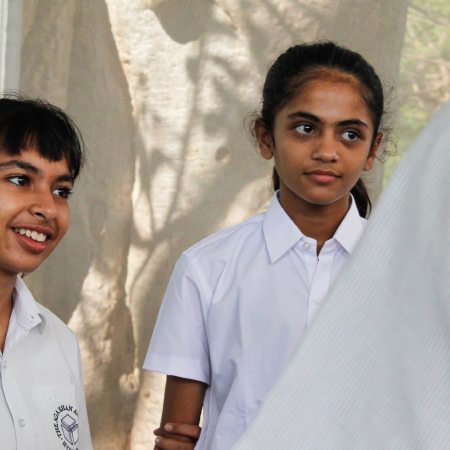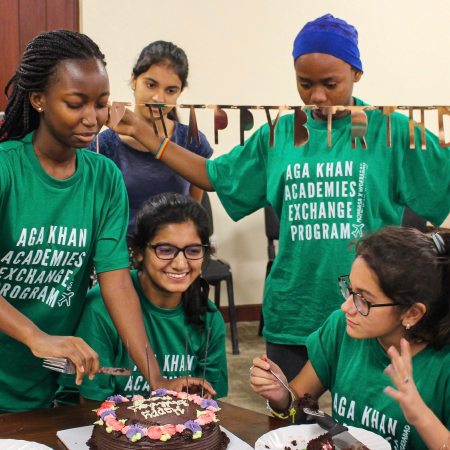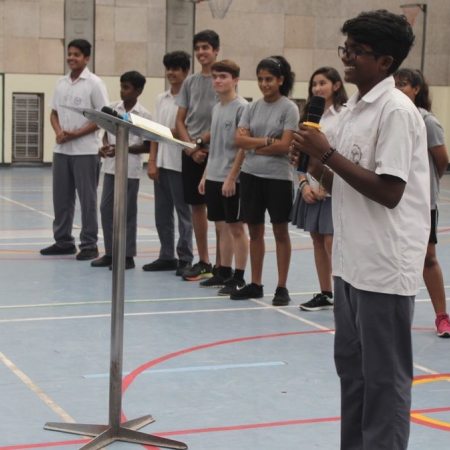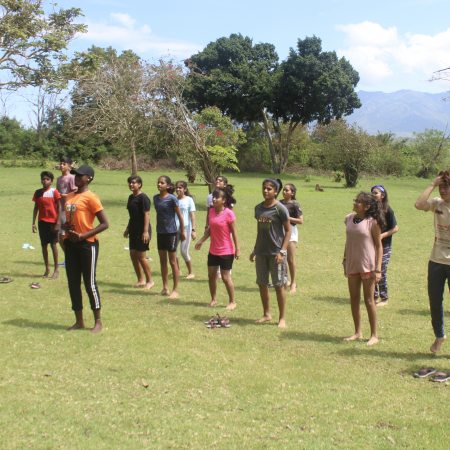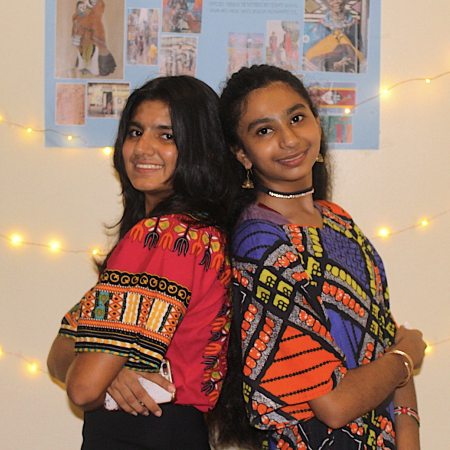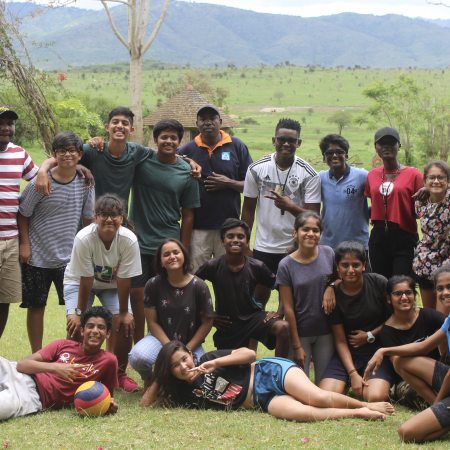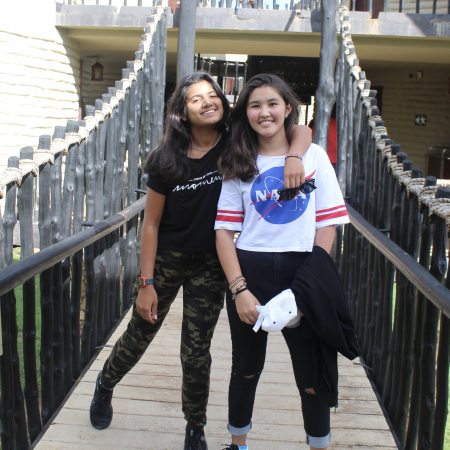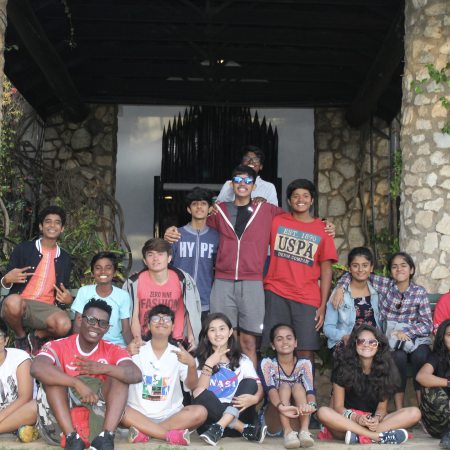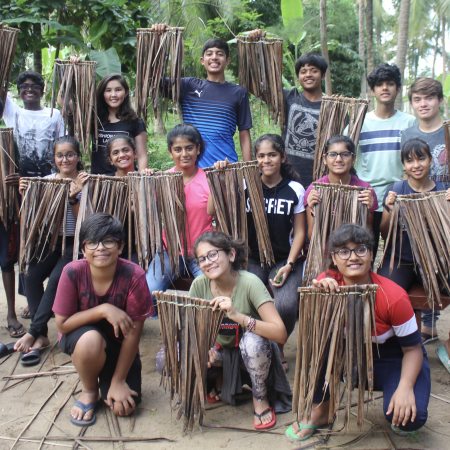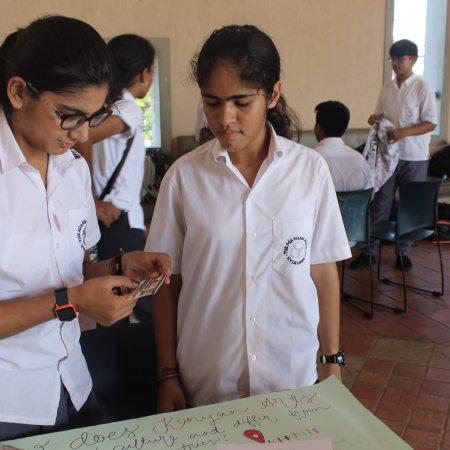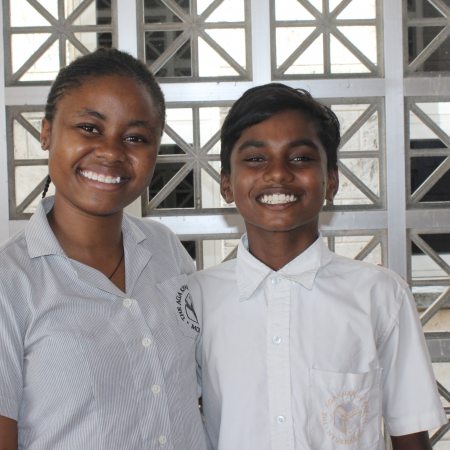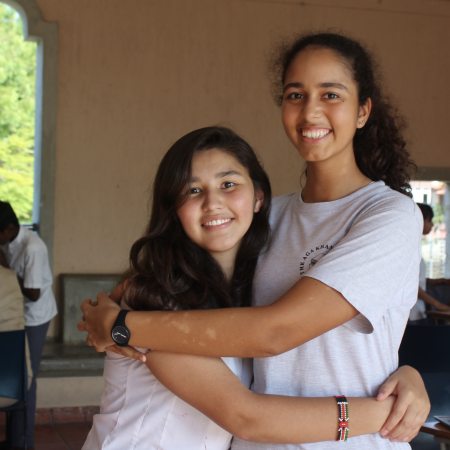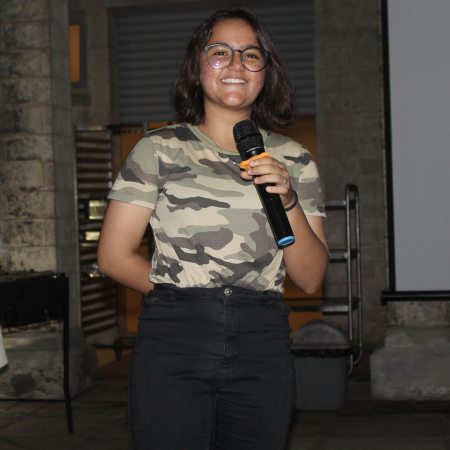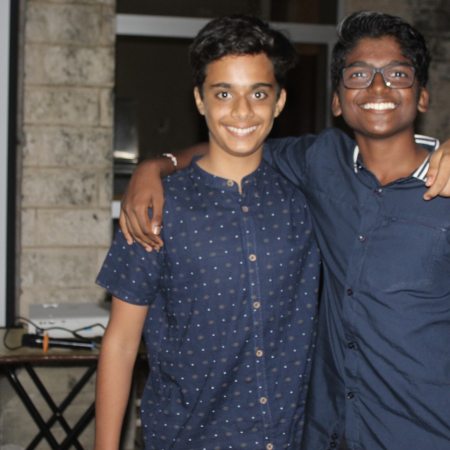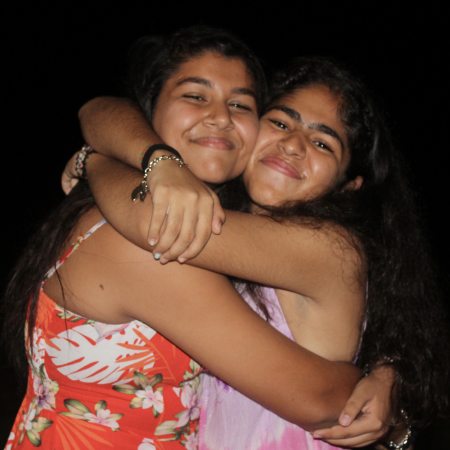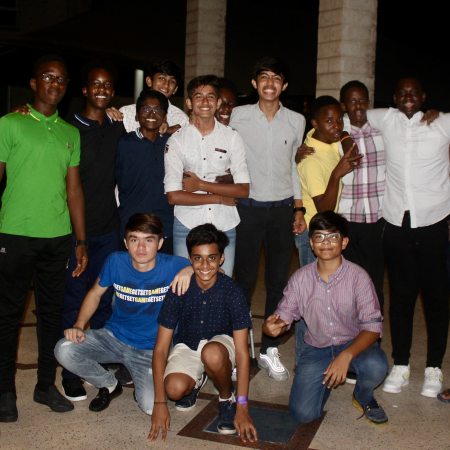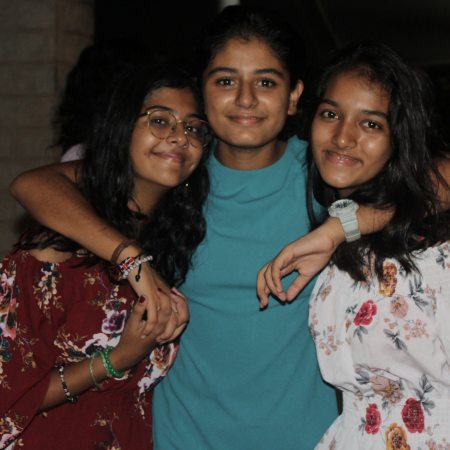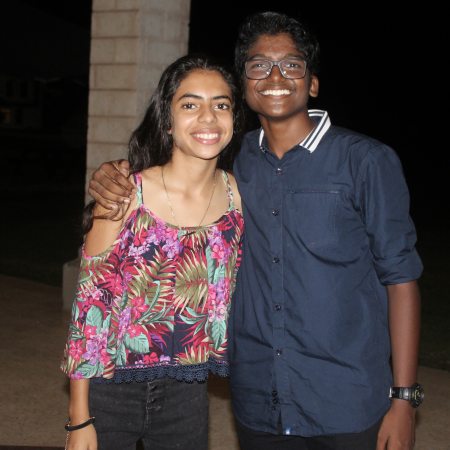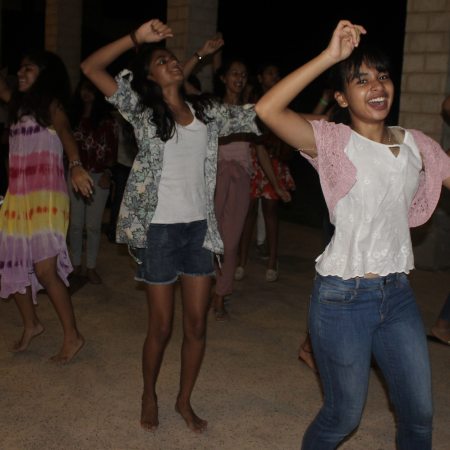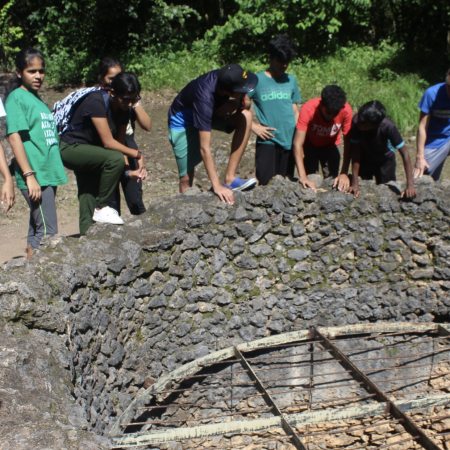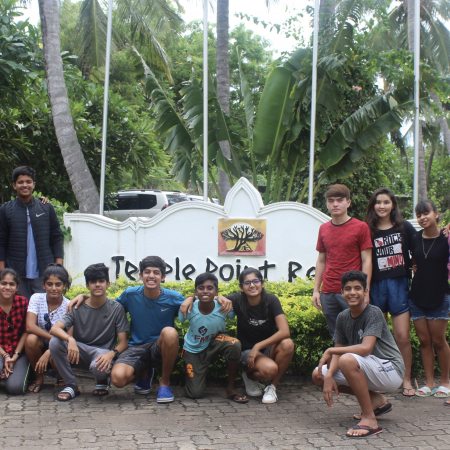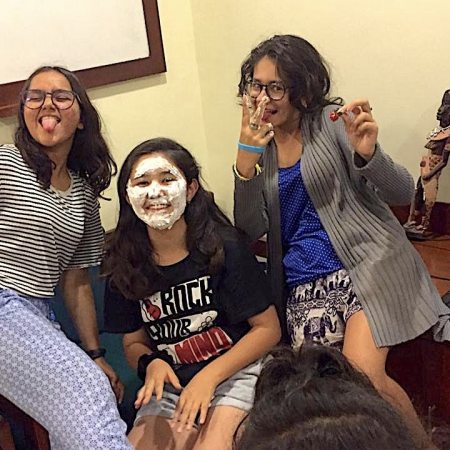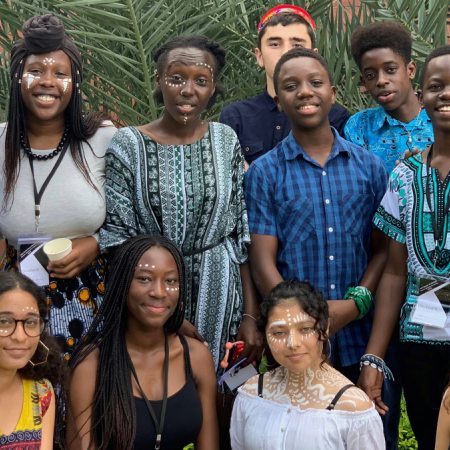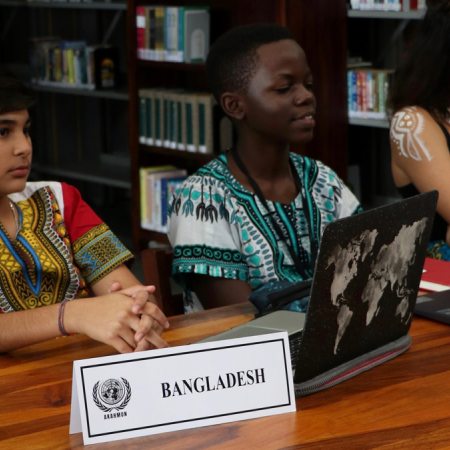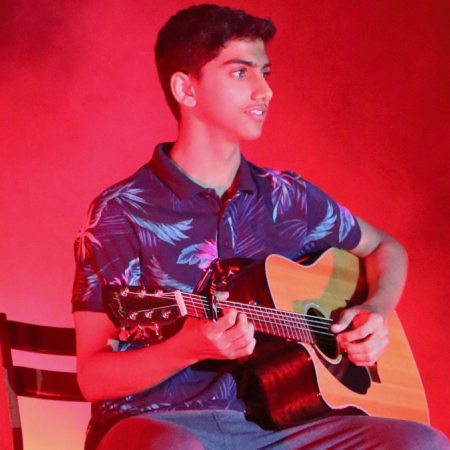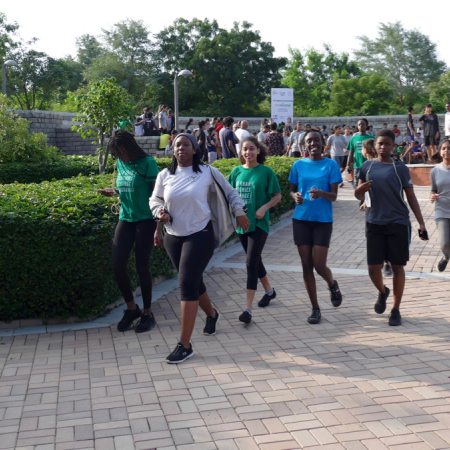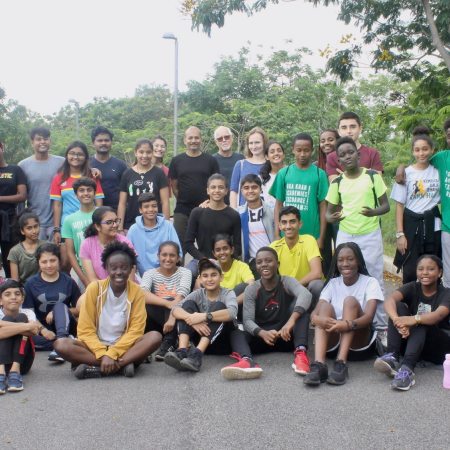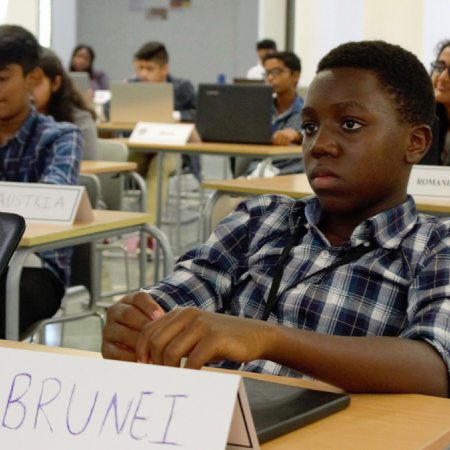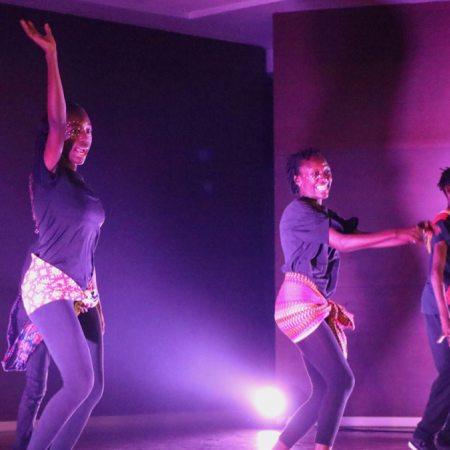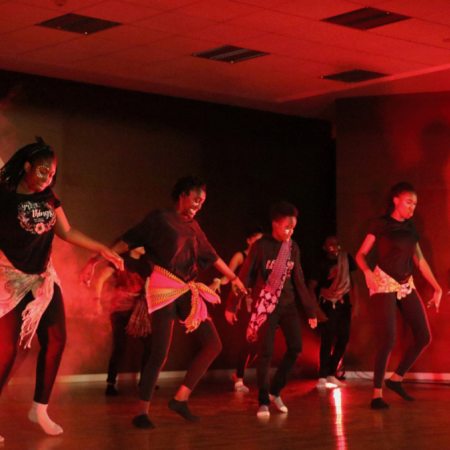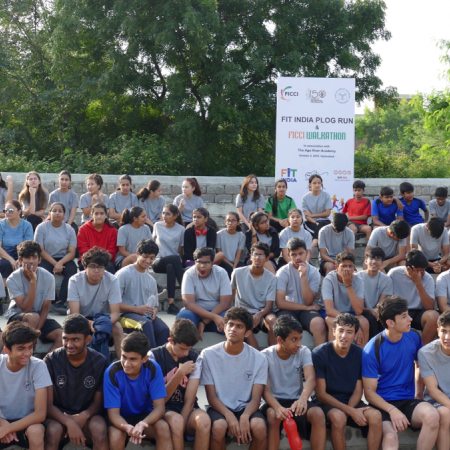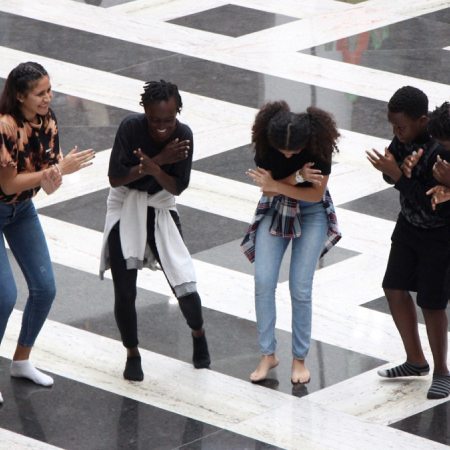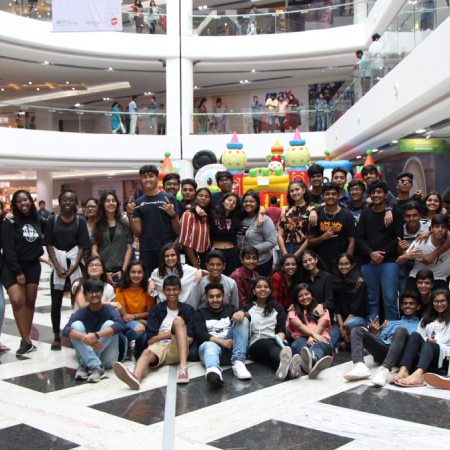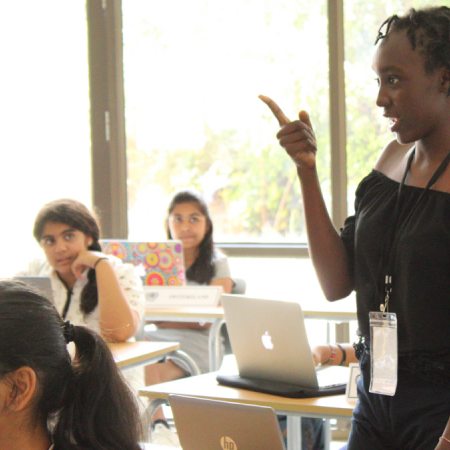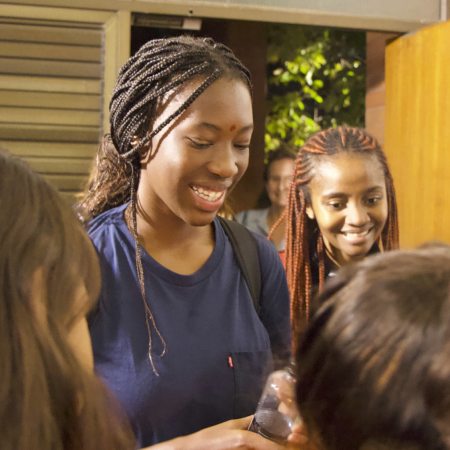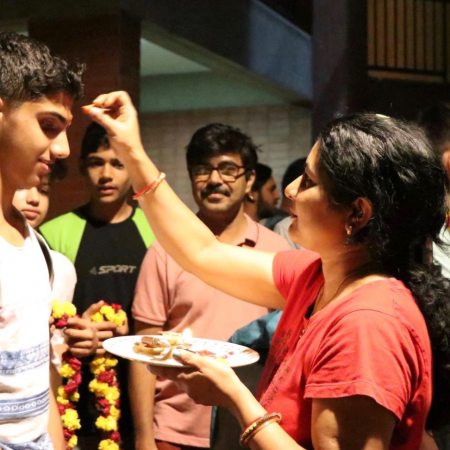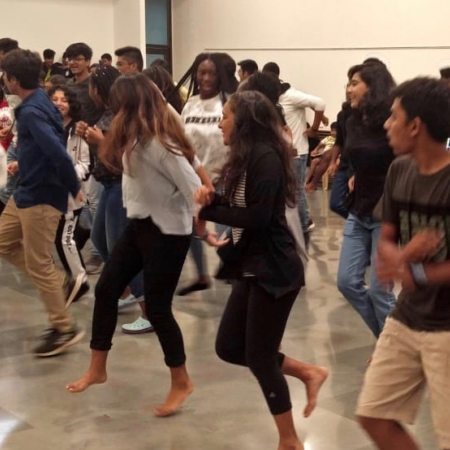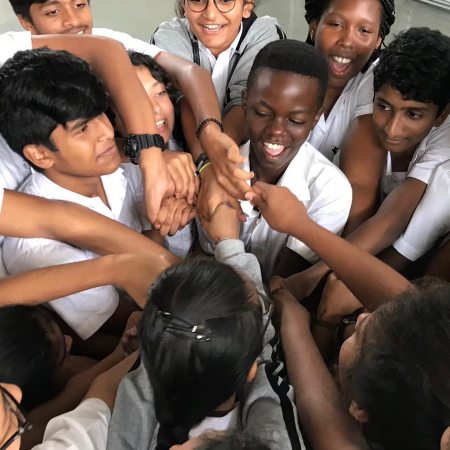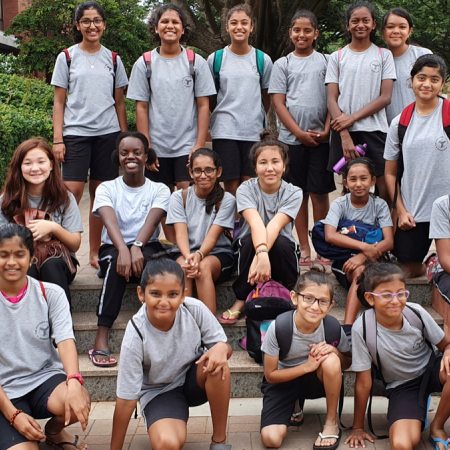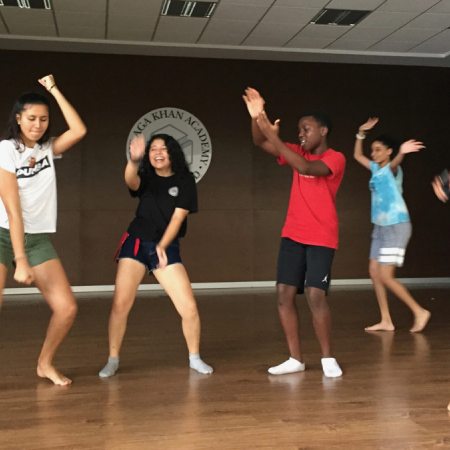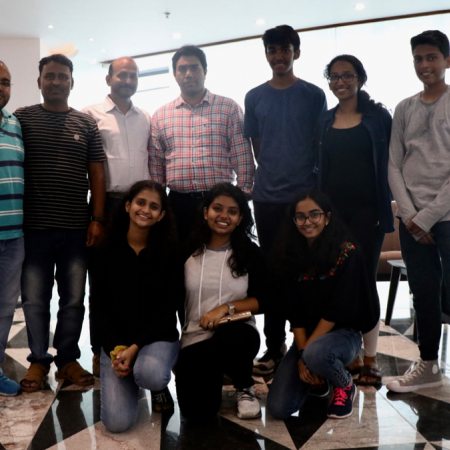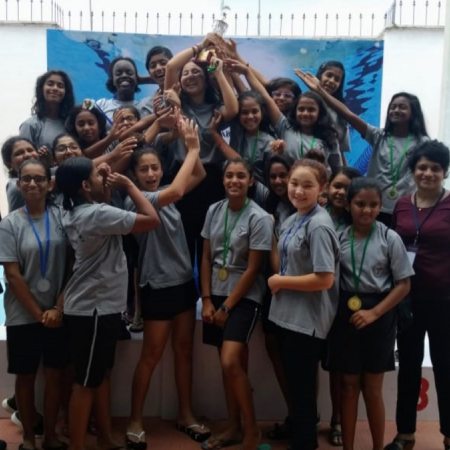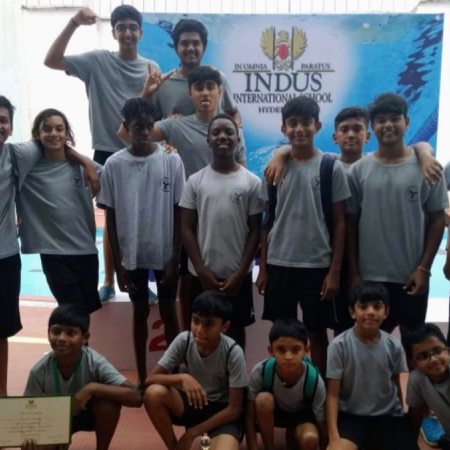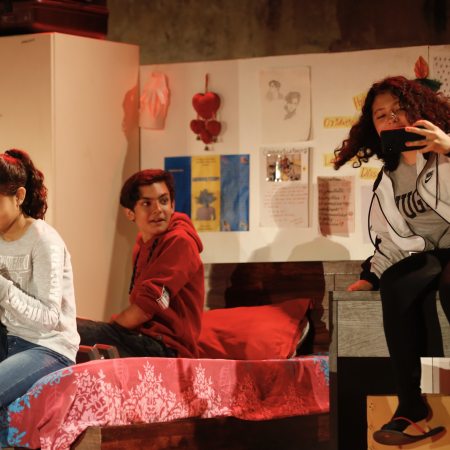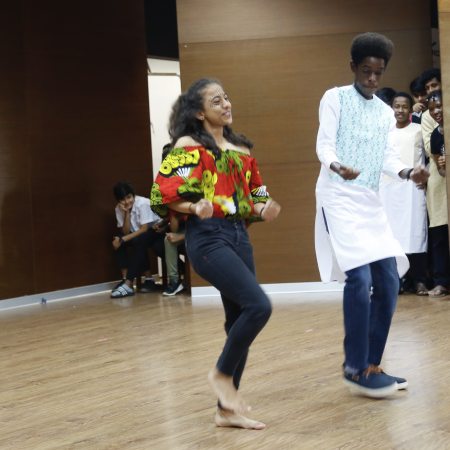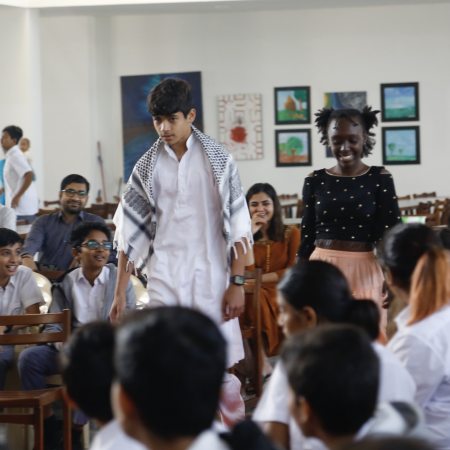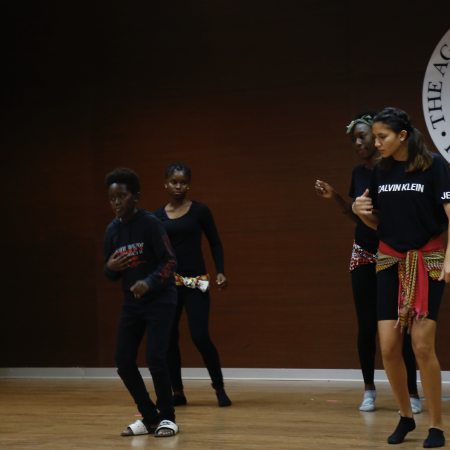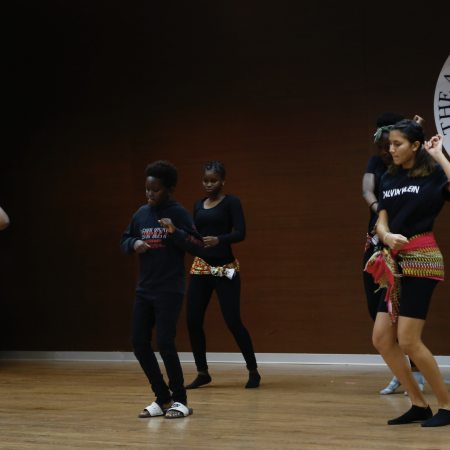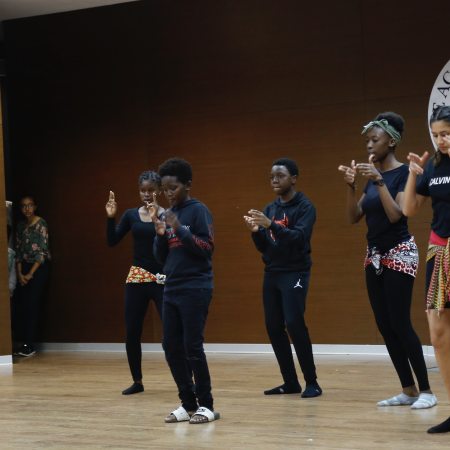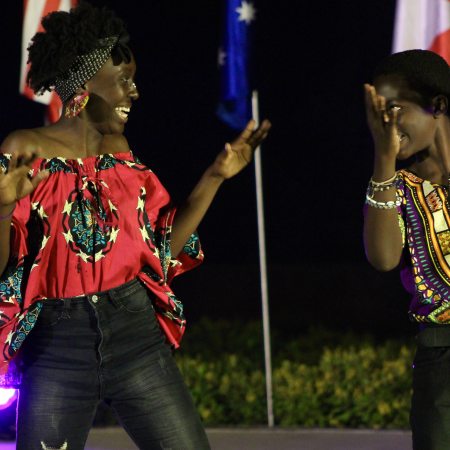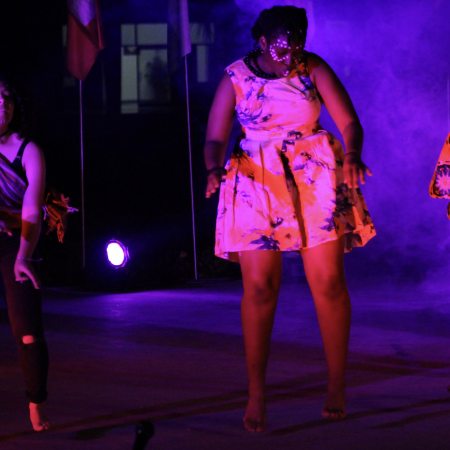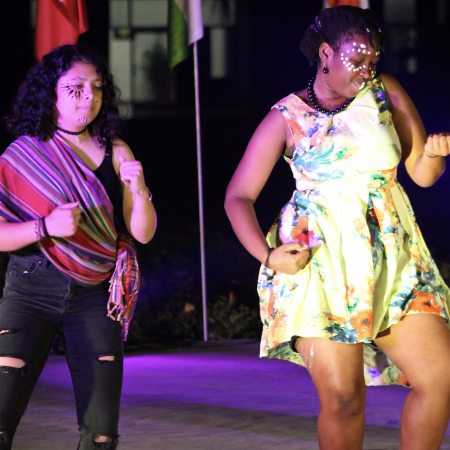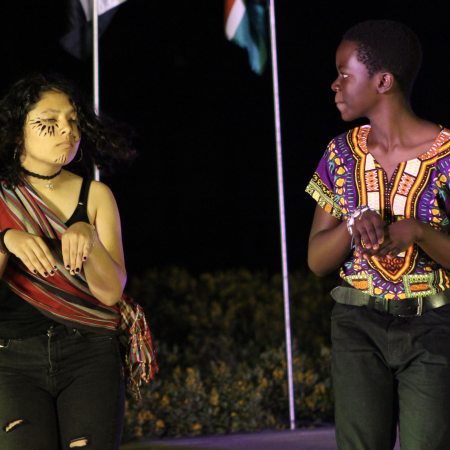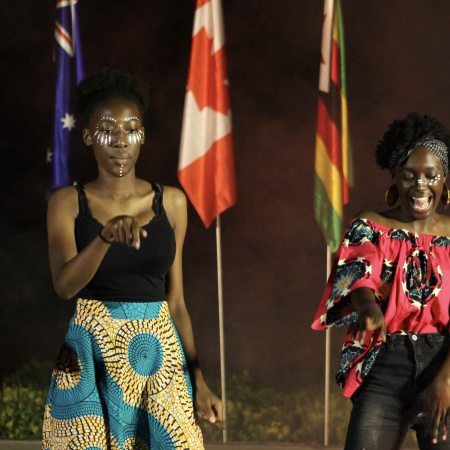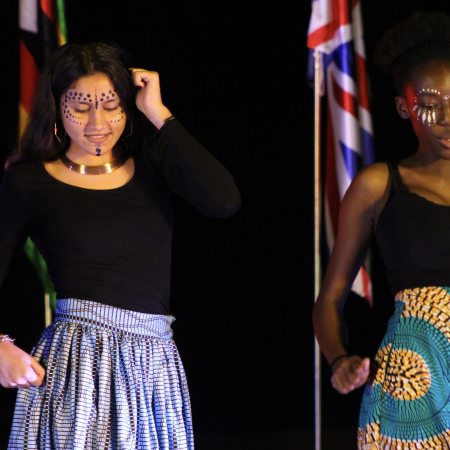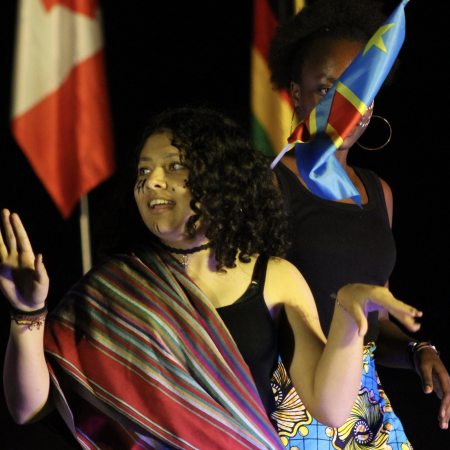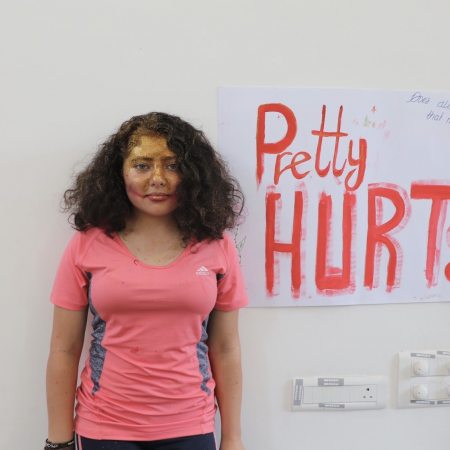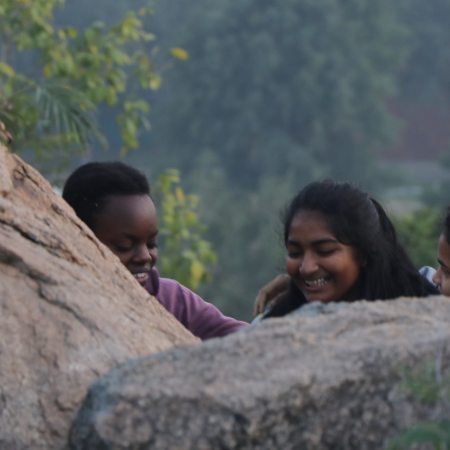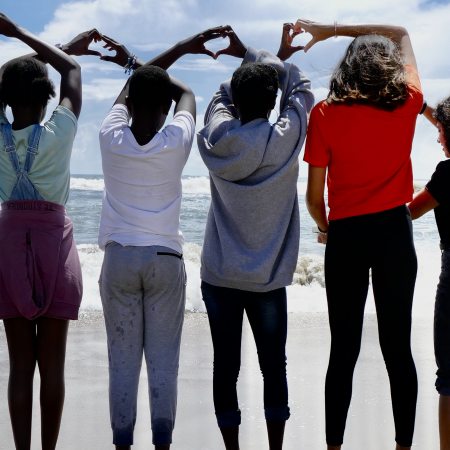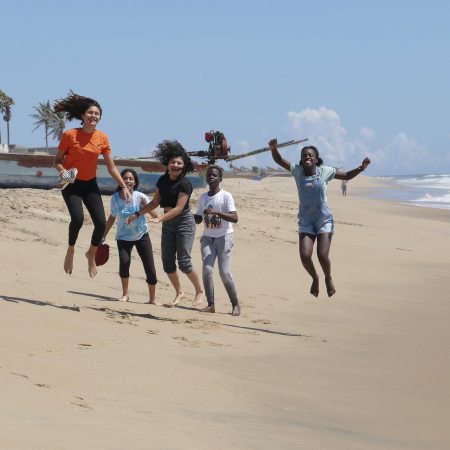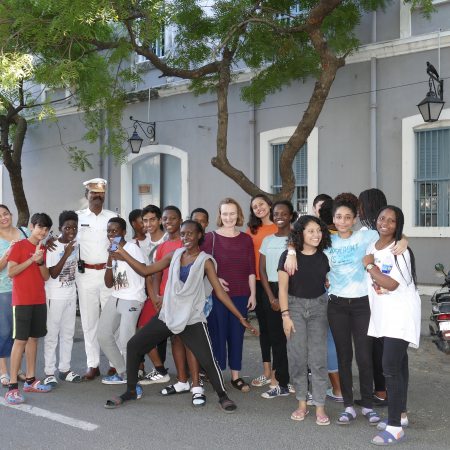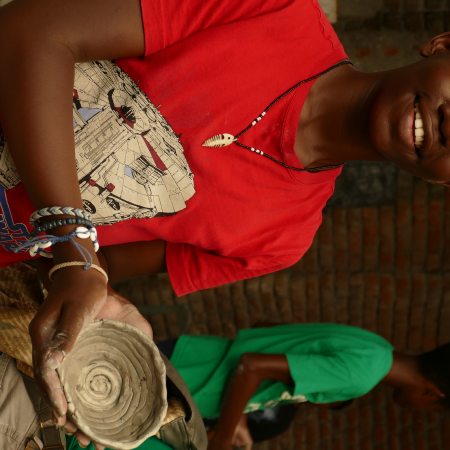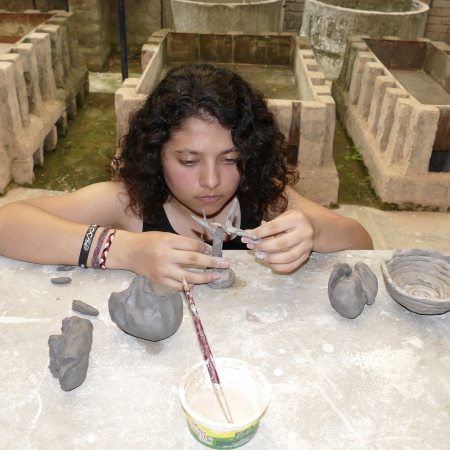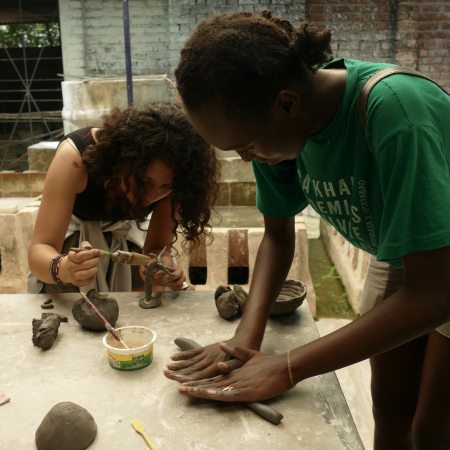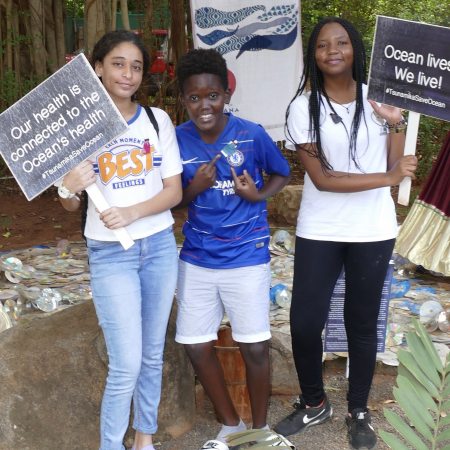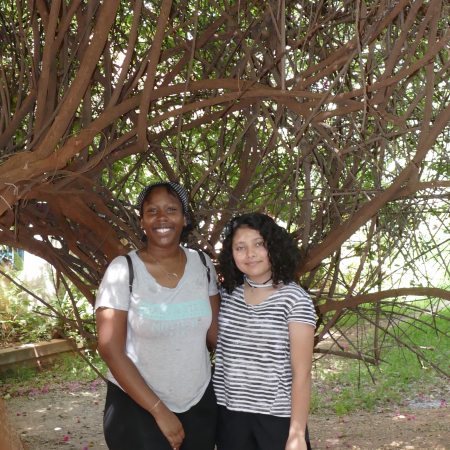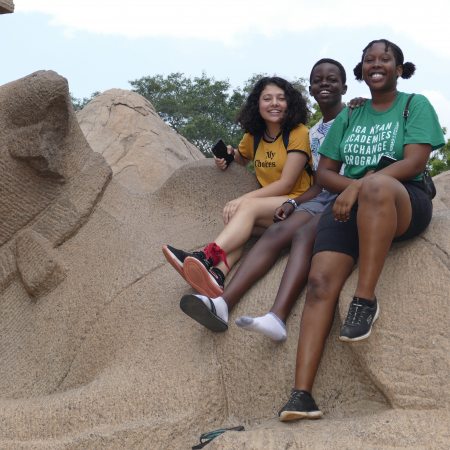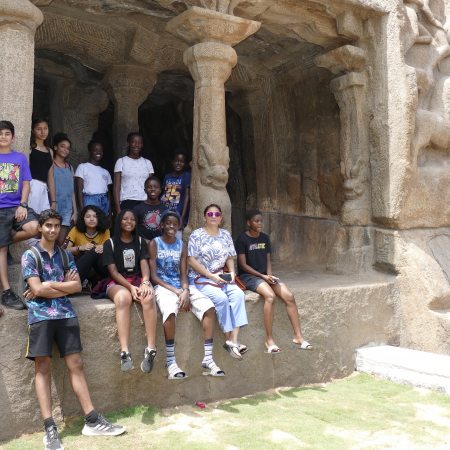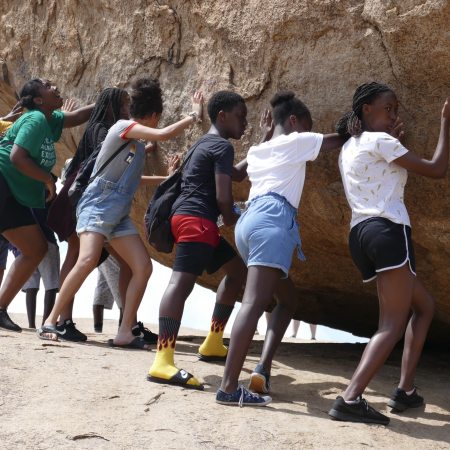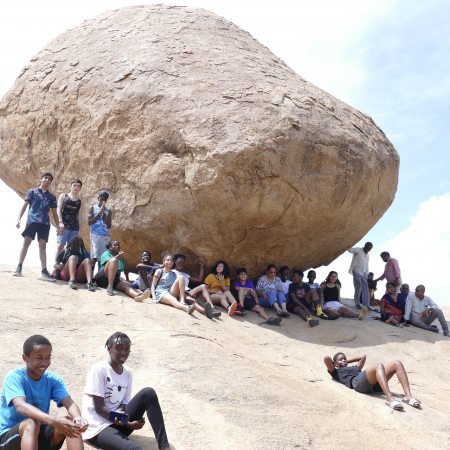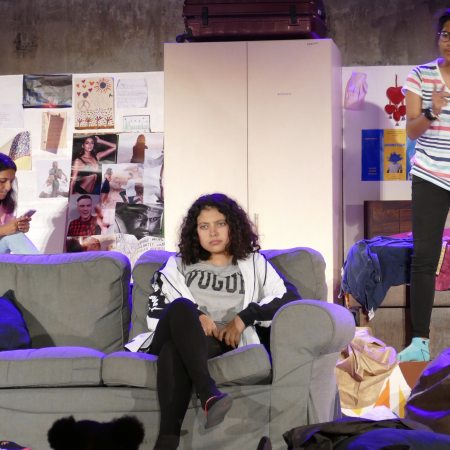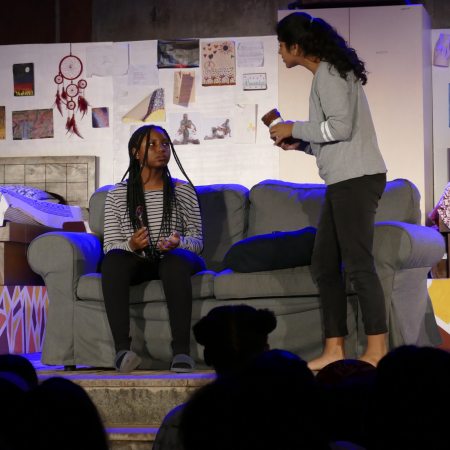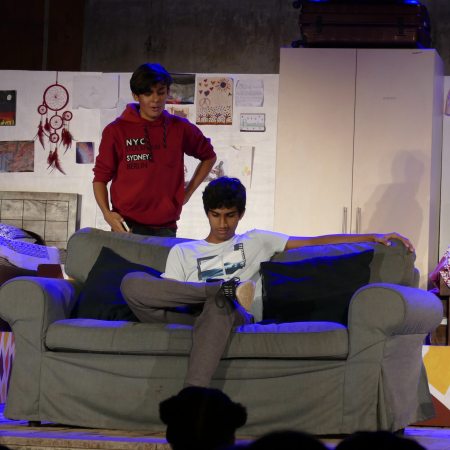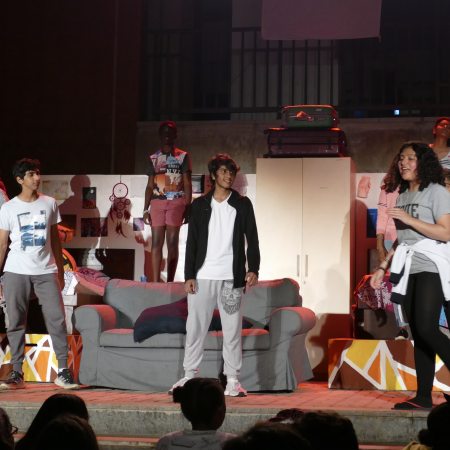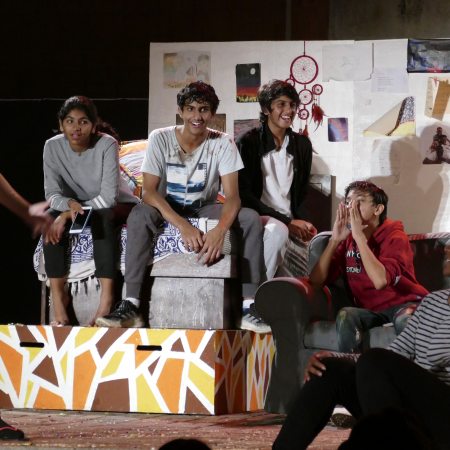Int'l Day of Women & Girls in Science - 11th February 2019
We celebrate our alumni, Alisha Sonawalla & Sarah Keshvani, through spotlights profiling their accomplishments in science & tech.
Karishma Bhagani (Class of 2015): Making a splash for clean water
Look below for a video of Karishma speaking at the Passion in Science Awards.
Last year, 20-year-old Karishma Bhagani of Mombasa, Kenya was awarded a seed grant at the NYU Reynolds Changemaker Challenge, beating out eight other teams and 46 other projects. Bhagani won the seed grant for an innovative water purification system that makes the most of natural resources in cash-strapped communities that need clean water. Her initiative, Matone De Chiwit, came about as a solution to a problem she noticed: more and more diseases were emerging as a result of fluctuating weather in the country, ranging from floods to drought conditions. She knew that something had to be done.
Matone De Chiwit means “drops of life” in three different languages. Matone means drops in Kiswahili (Kenya), de means “of” in Spanish (Latin America) and chiwit means “Life” in Thai (Thailand). These three languages represent the three parts of the world that suffer the most from clean water scarcity. It also speaks to the global nature of her venture, as Bhagani intends to expand her project to these three regions and beyond.
Aga Khan Academy as an Inspiration
Bhagani is a fourth-generation Kenyan who recently moved to New York City where she is studying drama, history and South Asian studies at New York University. The Aga Khan Development Network has always been a part of her life as she was one of 17 students at the Aga Khan Academy in Mombasa who made up the first class to have been educated from pre-school to IB graduate.
The biggest lesson that Bhagani drew from her education is to be a holistic student. She strives to be as well rounded as possible, striking a balance between a social life, sleep, work and school, all with the goal of making a global impact. This pursuit of balance was inspired by her many years at the Aga Khan Academy.
“I think that at the end of the day what everything comes down to is how we can be citizens of the world and how we can change the world that we live in to make it a better place for ourselves and children that follow us. And part of that also means giving back to your own community,” said Bhagani.
When she was in middle school, she was required to carry out a personal project on something that inspired her. Having noticed the drastic fluctuations of weather and rampant diseases in her country, Bhagani decided that she would come up with an innovative water purification system that uses readily accessible natural resources. Her initiative uses locally available materials – sand, gravel, charcoal and cotton cloth – to purify water for villagers all across Kenya. The initial version of the product also used chlorine tablets called Aquapur. Bhagani received generous sponsorship funding from Davis & Shirtliff, a local water supply company, for donating 20 units to a community to test for effectiveness. “A lot of the families said that the water was ‘tamu sana’ which in English means very sweet,” said Bhagani.
Before Bhagani came up with her product, local families were typically just drinking untreated water, using a lot of energy to boil it on charcoal-heated stoves or using Aquapur chlorine tablets.
Testing and Improving
Through testing and implementation in villages, Bhagani and her partners came to the realization that using chlorine in a plastic container might not be the best idea. These tablets can actually be dangerous to human health — high doses can be potentially harmful as the plastic in the bottles reacts with the chlorine, resulting in the spread of more serious illnesses. So they decided to change it to moringa oleifera, essentially dried seed kernels of drumstick tree powder. Then, she carried out a lot of testing by collaborating with the Coast Water Services Board. She found that the new version worked just as well as the chlorine unit did.
When she was in the IB program at the Academy, she had the opportunity to take her unit to the Golden Climate International Environment Project Olympiad. That’s where she carried out even more research and testing to modify and improve the system. Her project ended up advancing to the national round, then the international round, where she won gold in its category.
It was at this point that she decided to patent the product. She applied before starting at NYU and received the patent while she was a first-year student.
Why Matone De Chiwit?
What sets Matone De Chiwit apart from competitors is that the device is both chlorine-free and cost-effective. Since it’s made up of natural resources common in rural Kenya and other parts of Africa, they can be replaced easily, which means users don’t have to rely on Matone De Chiwit to replenish the filter. Charcoal is easily found and other ingredients, like the drumstick tree powder, can be grown in their backyards. Additionally, Moringa olifeira grows in a variety of climates and doesn’t need much water to grow.
In terms of cost, it’s much cheaper in the long-term than what is currently used. Even so, Bhagani intends to ensure it’s affordable for rural villages by applying for sponsorship and grant funding from large companies all over Europe and North America. Her venture is also bridging the gap from the city to the village, because she is working with people from each of those communities and bringing them together to achieve clean water and sanitation for all.
The Future
With the seed grants that Bhagani recently received, including the Reynolds grant, she plans to carry out her first beta testing. The biggest challenge for her at the moment is having an adequate source of funding to collect data.
“It’s kind of a chicken-and-egg situation because we need more evidence of this product working in practicality in communities so that we can apply for more grants to sustain us, but without the grants it’s difficult to go out into the communities to actually grow these projects with that seed money,” said Bhagani.
With the little funding that she currently has received, she plans to establish the purifiers in at least two or three communities. Bhagani will continue checking on the units to get enough data so she can apply for larger grants and potentially work with philanthropies like the Gates Foundation. She also hopes to conduct more research on its effectiveness through beta testing in communities.
“In five years’ time, I hope to have conducted at least ten beta tests in Mombasa, and have expanded the venture all across Kenya. My intention is to begin applying for larger grants by that time so that we can expand to other countries around the world,” said Bhagani.
Additionally, she plans to collaborate with other Aga Khan academies in Hyderabad, India and Maputo, Mozambique. That collaboration could build on student organizations that can work with the rural communities that they already engage with.
Her long-term plan is to create a sustainable community, which not only bridges the urban/rural divide but also allows families to provide for themselves.
This spotlight is republished courtesy of AKF USA.
Zia Chapman: Video Spotlight
Newsletter readers, click here to continue reading the newsletter.
Teen turning plastics into notice boards
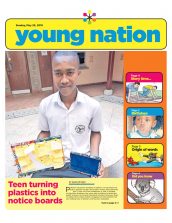
Student Exchange 2019 Gallery: Hyderabad students in Mombasa
Student Exchange 2019 Gallery: Hyderabad students in Mombasa
From September to November 2019, 35 students from the Aga Khan Academies in Hyderabad and Mombasa will be taking place in the Student Exchange Programme.
Through their weekly student blogs and photo galleries, follow these students' journey of discovery and see them experience a new culture, make new friends and gain a deeper insight into themselves and the world they live in – as they spend three months at a whole new campus!
Student Exchange 2019 Gallery: Mombasa students in Hyderabad
Student Exchange 2019 Gallery: Mombasa students in Hyderabad
From September to November 2019, 35 students from the Aga Khan Academies in Hyderabad and Mombasa will be taking place in the Student Exchange Programme.
Through their weekly student blogs and photo galleries, follow these students' journey of discovery and see them experience a new culture, make new friends and gain a deeper insight into themselves and the world they live in – as they spend three months at a whole new campus!
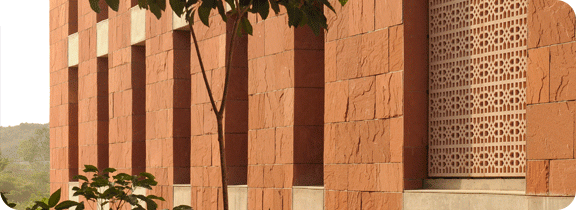
Quick Facts About the Academy
The Aga Khan Academy Hyderabad (established 2011)
Location: South of the city of Hyderabad, near the Rajiv Gandhi International Airport
Campus size: 100 acres of land allocated by the state government
Campus design and construction:
- total built area: approximately 500,000 square feet
- master facilities planners for the Academies: Sasaki Associates Inc. of Boston, USA
- campus design: award-winning architect Bimal Patel of HCP in Ahmedabad, India
- campus construction: Shahpoorji Pallonji
Curriculum
The Aga Khan Academy Hyderabad is an International Baccalaureate (IB) World School
IB programmes:
- Primary Years Programme: grades 1–5;
- Middle Years Programme: grades 6–10;
- Diploma Programme: grades 11–12
Aga Khan Curricular Strands, implemented across the curriculum:
Ethics, Pluralism, Cultures (with an emphasis on Muslim civlisations), Governance and Civil Society, and Economics for Development
Staff and students
Faculty numbers: 8 senior management, 63 Senior School faculty, 19 Junior School faculty, 7 working in both Senior & Junior Schools, 42 administrative staff
Number of students currently enrolled: 632 day and residential students in total: 140 day students in the Junior School; 492 students in the Senior School, with 245 in residence
Numbers of students and teachers at full capacity: 750 students and 90 teachers, with over 40% of students receiving some form of financial aid
First IB Diploma Programme graduating class: 2014
Residential students
Number of residential students: 245 currently, with full capacity of 300 students
Number of students per room: Between 2 and 4, with second year Diploma Programme students in single/double rooms
Residential facilities: Student lounge with multimedia and entertainment equipment, study areas, laundry facilities, dining hall
Campus facilities
Sports facilities: 25-metre swimming pool, diving pool, gym, two regulation-sized basketball courts, three cricket pitches with net practice facilities, two tennis courts, four squash courts, athletics track, junior play area, hockey field, training field, 2.5 km cross-country track
Arts facilities: Rooms for fine arts, music, dance; individual music practice booths; music recording area; amphitheatre performance space
Academic areas: Junior School classrooms, Senior School classrooms, science and computer laboratories, library and resource centre, arts facilities, music and dance studios
Residential buildings: 6 residential blocks: 3 male and 3 female; 6 dorm parent apartments in each block. Each block has a central atrium, lounge area, patio and laundry facilities.
Health and Wellness Centre: 12 beds and a full-time, qualified nurse
Professional Development Centre
The Aga Khan Academy Hyderabad is home to a Professional Development Centre for the advancement of teachers. The primary objective of this centre is to provide professional development that will benefit the wider school system in India.
Programming began in June 2010 with a Professional Learning for Educators Series for teachers in local government, independent and not-for profit schools.
The Aga Khan Academies network
18 Academies are planned in Africa, South and Central Asia, and the Middle East.
3 Academies are currently operating: Mombasa, Kenya (opened 2003); Hyderabad, India (opened 2011); and Maputo, Mozambique (opened 2013).
When complete, the network will represent 2,000 teachers and 14,000 students (boys and girls), with 1,400 graduates annually.
Institutional partnerships include:
Agencies of the Aga Khan Development Network; the International Baccalaureate, universities including the University of British Columbia, Concordia University, Ryerson University, University of California - Los Angeles, California State University - Northridge
Government partnerships include:
The Province of Ontario, Canada; the Ministry of Education, Science and Technology, Kenya; the Ministry of Education and Human Development, Mozambique; the French Development Agency (AFD); the French Mozambican Cultural Centre (CCFM - Centro Cultural Franco-Mozambicano); the Department of School Education, Telangana, India
Download the Quick Facts sheet here. ![]() AKA-Hyderabad-Quick-Facts.pdf
AKA-Hyderabad-Quick-Facts.pdf
